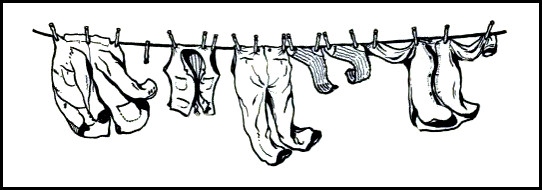John Lennon? Allen Saunders? Quin Ryan? Walter Ward? Henry Cooke? Robert Balzer? L. S. McCandless? Publilius Syrus? Thomas a Kempis? William Gaddis?
Question for Quote Investigator: Recently, a medical emergency threw all my carefully constructed plans into complete disarray. I was reminded of a remarkably astute and ruefully humorous saying credited to the musical superstar John Lennon:
Life is what happens to you while you’re busy making other plans.
When did he say this? Was he the first to express this idea?
Reply from Quote Investigator: John Lennon did compose a song containing this saying and released it in 1980. The song was called “Beautiful Boy” or “Darling Boy” and it was part of the album “Double Fantasy”. Lennon wrote the lyrics about his experiences with his son Sean whose mother is Yoko Ono. In 2012 YouTube had a streamable version of the song, and the phrase could be heard at 2 minutes 16 seconds into the track which had a total length of 4 minutes 12 seconds. Lennon sang the following. Boldface added to excerpts by QI:1
Before you cross the street take my hand.
Life is what happens to you while you’re busy making other plans.
But the general expression can be traced back more than two decades before this time. A partial match occurred in September 2, 1956 within the comic strip “Mary Worth” which was written by Allen Saunders and distributed by Publishers Syndicate. The character Guy expressed ambivalence about a relationship, and the character Mary Worth delivered an insightful comment:2
I GUESS I WAS JUST TOO SLOW MRS. WORTH! I WANTED TO BE SURE … AND I WANTED SUZANNE TO BE SURE!
THERE IS AN OLD SAYING, GUY, THAT LIFE IS SOMETHING WHICH HAPPENS WHILE WE’RE WAITING FOR SOMETHING ELSE!
A full match occurred on December 18, 1956 in the “Stockton Record” of Stockton, California:3
And In Conclusion
Life is what happens to us while we are making other plans.—Publishers Syndicate.
QI hypothesizes that the statement above was derived from the statement in “Mary Worth” although the phrasing was somewhat different. The title of the Stockton newspaper article was “Scissors: A Roundup of Best Humor” which indicated that the statement was reprinted from another periodical.
Specifically, QI believes that the statement was reprinted from the January 1957 issue of “Reader’s Digest” magazine. This date was misleading because the magazine was actually available at least two weeks before its cover date. Interestingly, The “Reader’s Digest” presented the name of the author of the statement:4
Allen Saunders: Life is what happens to us while we are making other plans.
—Publishers Syndicate
The item above appeared in a section called “Quotable Quotes” in “Reader’s Digest”. Material for this section was sometimes submitted by readers, and it was not rigorously verified.
QI conjectures that an unknown person saw the “Mary Worth” comic strip and was impressed by the statement from Allen Saunders. The person later submitted an item to “Reader’s Digest” based on an imperfect memory. The item contained a rephrased version of the statement credited to Saunders. The magazine accepted the submission and published it.
Before the discovery of the citation in “Mary Worth” the earliest commonly known evidence was the citation in the “Reader’s Digest”. Three important reference works list the “Reader’s Digest” citation: “The Dictionary of Modern Proverbs”5, “The Quote Verifier”6, and “The New Yale Book of Quotations”.7
Here are additional selected citations in chronological order.
Continue reading “Quote Origin: Life is What Happens To You While You’re Busy Making Other Plans”
